Washing nuts
We explain their origin and how they can be used in a society as industrialised as ours.
You may not have heard of them before, but the WASHING NUTS They are not a novelty or a rip-off, and in places like India and Nepal they have been used for centuries as a detergent.
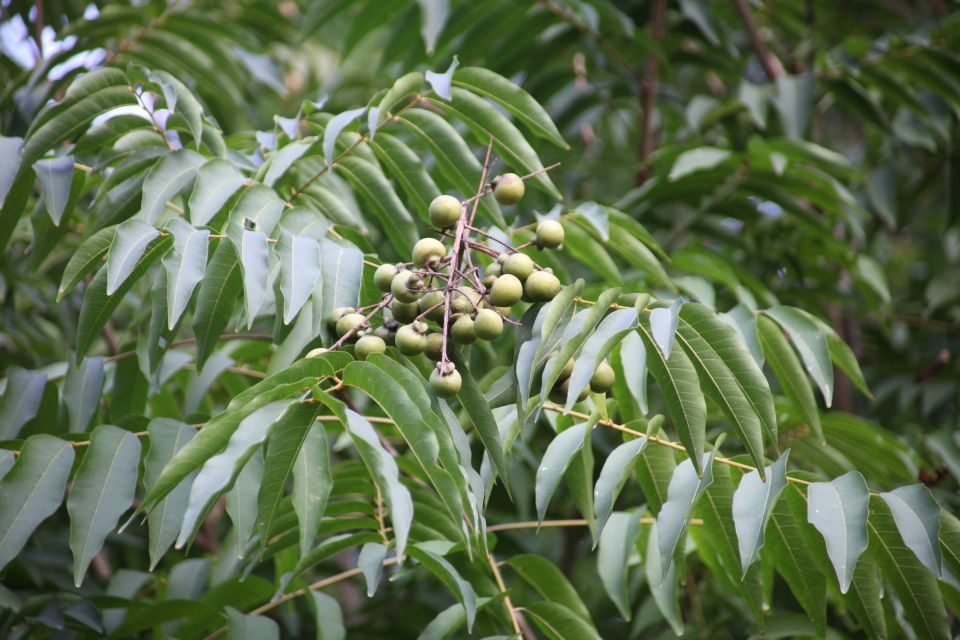
The WASHING NUTS are the fruits of a tree, Sapindus Mukorossi or 'soap tree', which grows in a large area of Central Asia. The tree, which grows to a height of fifteen metres and is covered with white flowers in March/April, produces nuts that are harvested in September/October, when they turn a beautiful golden colour. They are dried, peeled, the shells are separated and packed in cloth bags. These shells contain a highly prized substance, 'saponin', which has excellent detergent properties as it dissolves in water and acts as a natural soap.
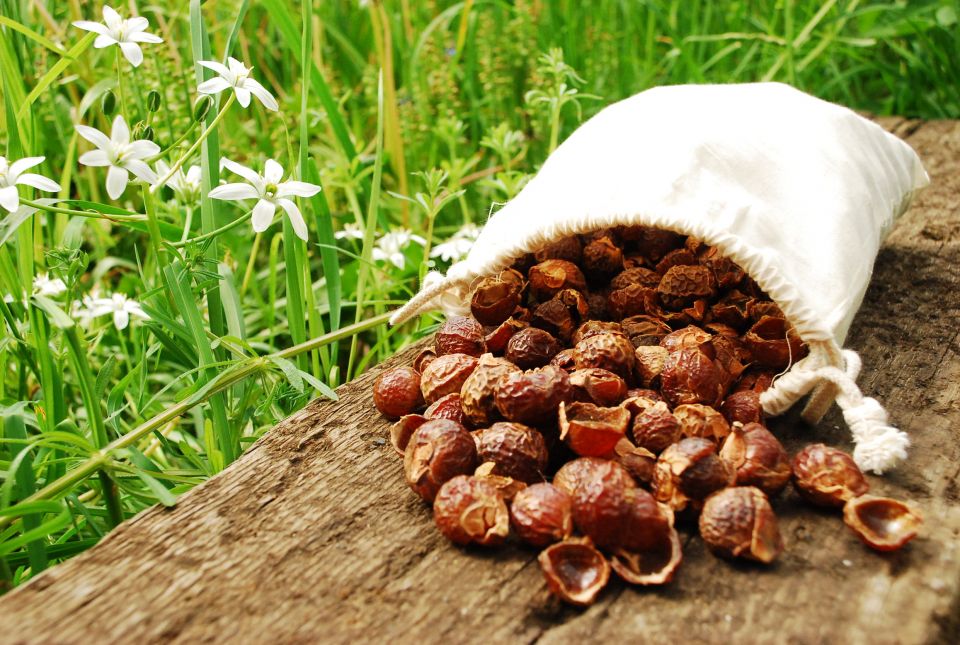
These peculiar fruits have many uses. For washing clothes in the washing machine, five or six shell halves in a cotton sack or in a sock placed directly into the drum are enough for 2 or 3 washes in cold water / 1 or 2 washes in hot water. There is no need to use fabric softener and it also takes care of the colours (these nuts are used in India and Nepal to wash their delicate wools and silks!) and the clothes will come out unscented so, if we want, we can also add a few drops of essential oil to the wash water.
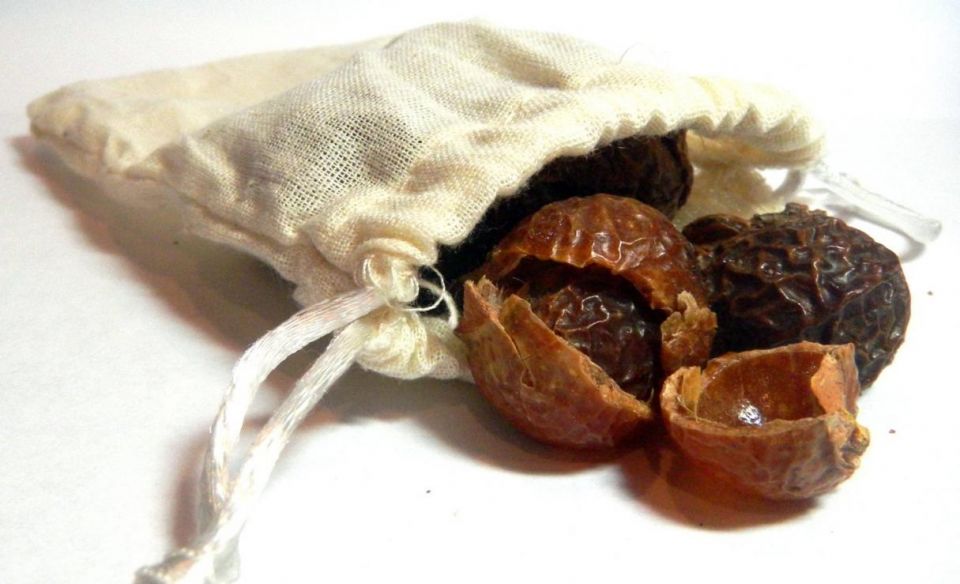
If we want to obtain a concentrated soap, it is enough to boil twenty or thirty new peels for each litre of water; after five minutes of boiling, turn off the heat and let it cool down. We can do the same with the husks already used in the washing machine (the husk remains dry and dark), but in this case we boil only half a litre of water.
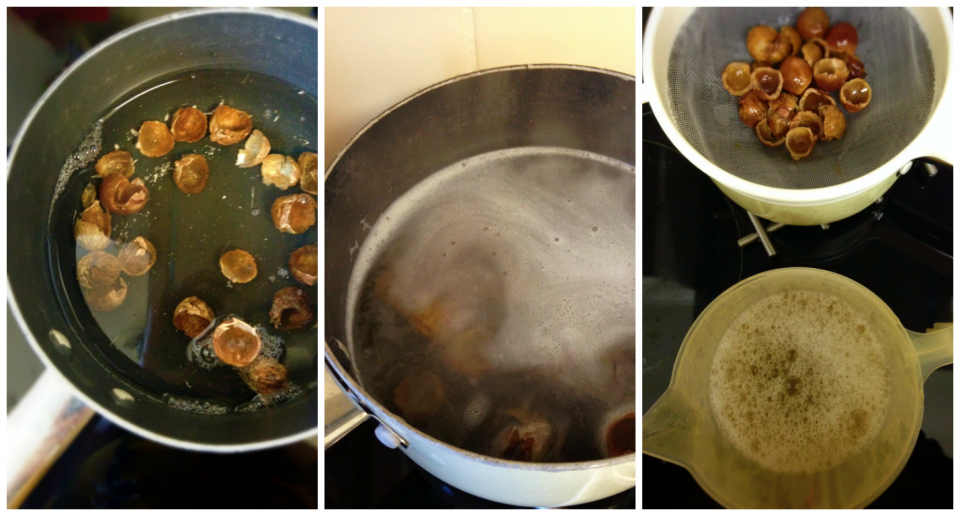
This mild soap can be used as a shampoo for pets (it is a natural parasite repellent) and as a cleaning product, as the saponin purifies and disinfects without containing the aggressive ingredients of traditional detergents, making its use especially suitable for people with allergies or skin diseases as well as for babies. It is also used to clean crockery, floors, glass... Even spraying plants with it will fight against pests and diseases.
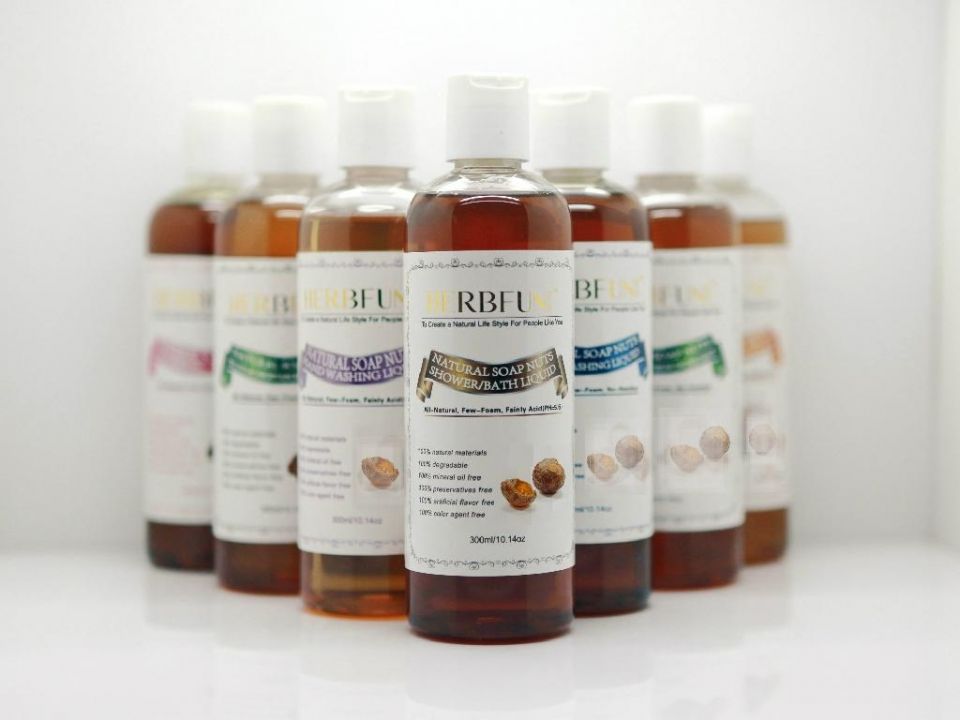
It is a 100% product that is natural, environmentally friendly, highly effective and economical. A one-kilo bag of walnuts is enough for a hundred machine washes or six months of washing for a family of three, and its average cost, among all the options available on the market, is around €14.
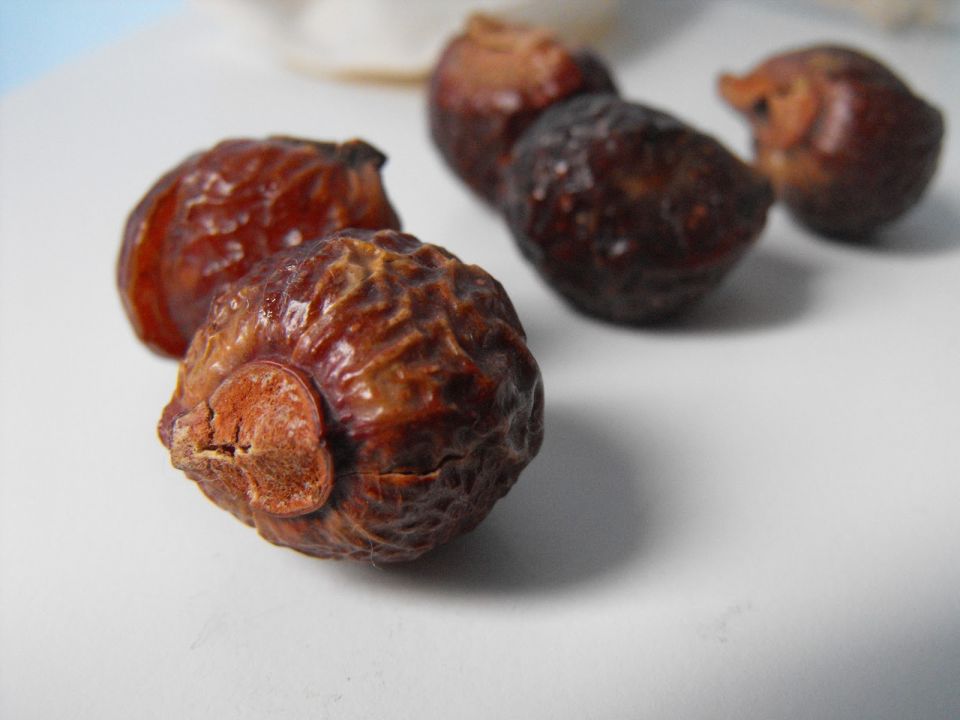
It seems incredible that on this side of the world we have only found out about these great nuts so late, when our rivers and seas are already in a mess. Inexpensive, natural, free of abrasive chemicals, skin and environmentally friendly, what more do you want?


